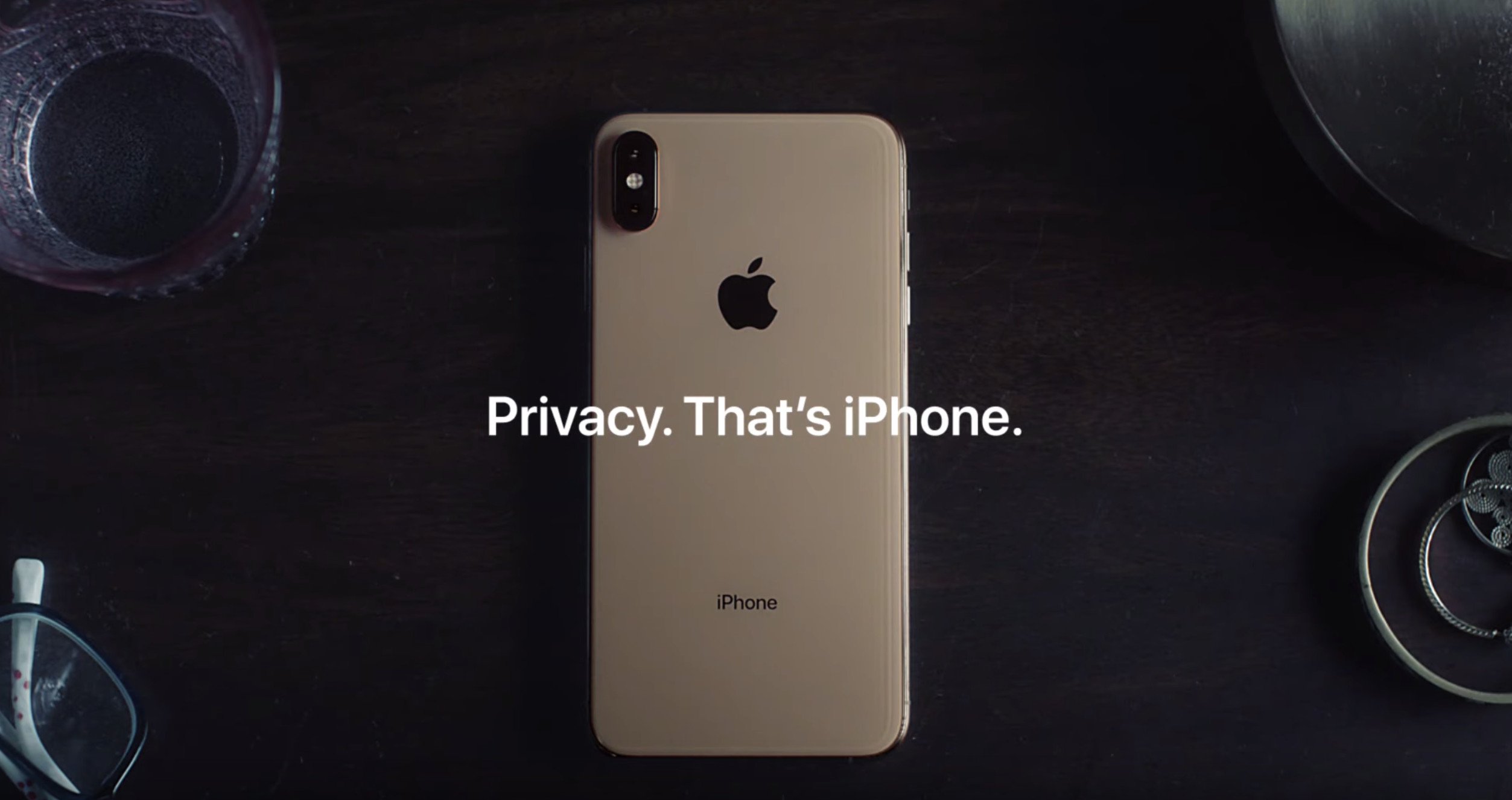iPrivacy
It's promising that Apple is focusing so much of their marketing efforts on the “privacy” of their products. Though it doesn't make someone like me want to buy an iPhone, it at least shows that people are growing concerned enough with the issue for a large company like Apple to address it. Still, we shouldn't rest all our hopes for digital privacy on a marketing campaign.
The thing is, device privacy is a small piece of the entire privacy cake. Though I appreciate the ads for what they are, it's silly to see iPhone advertised as a privacy panacea when every one has Facebook, Instagram, Google, Pinterest, and every ad-supported “free” app in the App Store installed on it. Knowing this veneer of “iPhone = Privacy” is so thin and clear makes it all more of an amusing joke than anything.
I spend a lot of my time thinking and speaking about digital privacy. So when people see my personal choice in pocket tracking device, I get questions like: If you care about privacy, why do you use Android? Well, it comes down to the fact that I could spend hours and hours of my life protecting myself against corporate surveillance, or I could take steps to minimize its harm to an acceptable degree, so I still have the energy left over to fight for privacy in more productive ways (like building a privacy-focused company, etc.). And I recommend others do the same.
I hear this a lot, across the age and technical spectrum: “I saw this creepy ad about something I was just talking to someone about” or “I don't like how much Facebook knows about me.” Whenever someone says that, I tell them there are plenty of easy ways to reduce privacy invasions today. We don't need to wait on Google or Apple to build feel-good features into their products, and we don't need a new marketing campaign about the “privacy” they offer.
The easiest thing you can do is take your phone out of your pocket and just leave it wherever you put it. Don't take it to dinner. Don't take it to the grocery store. Don't light it up when you get bored. Simply make it a less integral part of your life and you'll automatically reduce how much it knows about you, regardless of whether your location services are on, or whether it was advertised that way. This is free and platform-independent. It doesn't require a new app or even an internet connection.
Of course, this ignores the aforementioned issue: the set of web services you use. Sure, your phone knows less about you, but Google still knows where you are when you use Maps, and Instagram still notes your every “like” and hesitation as you scroll past photos of your ex.
But an interesting thing happens when you reduce your smartphone usage: many of these apps start to know less about you, too. You're simply giving them less behavioral data to work with in the first place — a great way to preserve your digital privacy.
You might have a real-life conversation rather than one transmitted through Facebook, or buy something from the corner store instead of on Amazon, or go straight to Wikipedia instead of Googling something. The “experts” online and in the media will cry that this is futile; they'll squawk that privacy is dead. But it's not. These actions provide real, immediate privacy improvements — and they add up in ways you can't imagine.
It's true that this doesn't increase your personal privacy to 100%. But that's not what I'm personally going for, and I think pursuing perfect privacy is a waste of time for the average person. I think there's a balance to be found that's accessible to everyone.
For me, I enjoy participating in modern, digital society. I like being connected to the people that matter to me, no matter where they live digitally. But I also very much like my personal privacy, and I take reasonable steps to preserve it, even as I swim in a world of cute and cuddly consumer surveillance. Fortunately we all hold the power to do the same today, without any extra technology needed (indeed, that's the point). Small steps can help tilt the scale back in our favor.
We just can't wait on Apple or Google to tell us it's okay. It doesn't benefit them if we start using their smarttoys as tools. After all, we might find other things to do with our lives! We might spend more time outside, or spend time with each other for free! We certainly might think twice about upgrading our devices next year!
Some of what's truly good for us is bad for them. So let's not rely on them to tell us when we finally have privacy, or digital wellbeing, or whatever will comfort the masses today. We know what real privacy feels like, even online. All we have to do is acknowledge what we've lost and take the smallest of steps to reclaim it.
Want more writing like this? You can get my future posts delivered straight to your inbox by entering your email address below, or subscribe another way.
(Powered by Write.as Letters, which will never share or sell your email address — something I can personally vouch for because I made it!)
